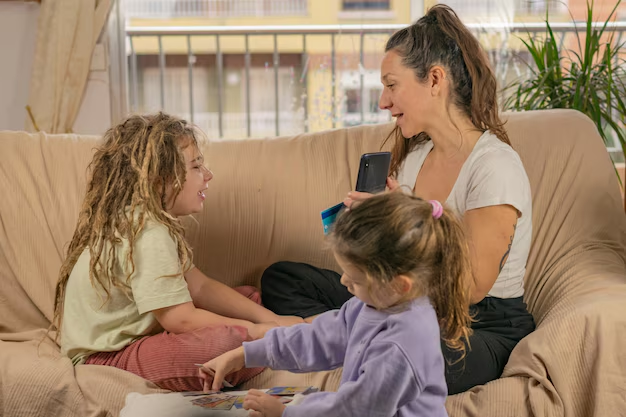School Recreational Therapist Career Guide | Education, Salary, and Career Outlook
Embarking on a career as a School Recreational Therapist offers a fulfilling opportunity to foster the emotional, social, and physical well-being of students through recreational activities. This vocation bridges the gap between therapy and education, playing a crucial role in enhancing student life within the school system. With roots tracing back to the early 20th century, recreational therapy has evolved significantly, cementing its place in modern healthcare and educational settings. This career is particularly appealing to individuals passionate about working with youth, advocating for mental health, and utilizing creativity to bolster student development.
Education and Training
Pursuing a career as a School Recreational Therapist requires a solid educational foundation and specialized training. Let's explore the educational journey to becoming a proficient practitioner in this field.
High School Preparation
While high school courses are not mandatory precursors, subjects like psychology, biology, health, and physical education can be beneficial. These courses provide a basic understanding of human anatomy, psychological principles, and an appreciation for physical activities—all vital components in recreational therapy.
Required Degrees and Certifications
To work as a School Recreational Therapist, a bachelor's degree in recreational therapy or a related field is typically required. This degree provides a comprehensive curriculum covering topics such as therapeutic recreation modalities, psychology, and intervention strategies.
Example Programs and Institutions:
- University of North Carolina at Wilmington: Bachelor of Arts in Recreation Therapy
- Temple University: Bachelor of Science in Therapeutic Recreation
Specialized Training Programs
After obtaining a bachelor's degree, aspiring therapists may pursue specialized training. These programs often focus on particular therapeutic techniques or population groups such as children with disabilities.
Licensing and Board Exams
Many states require recreational therapists to obtain licensure to practice legally. This often involves passing the National Council for Therapeutic Recreation Certification (NCTRC) exam, certifying the individual as a Certified Therapeutic Recreation Specialist (CTRS).
Continuing Education
Continuing education is paramount for School Recreational Therapists to stay abreast of new therapeutic techniques and trends. It usually involves attending workshops, seminars, or enrolling in post-graduate courses.
Summary of Education Pathways
| Step | Description |
|---|---|
| High School Preparation | Relevant subjects: Psychology, Biology, Health |
| Bachelor's Degree | Degree in Recreational Therapy or related field |
| Specialized Training | Focused training in specific techniques or populations |
| Licensing & Board Exams | Pass NCTRC exam to become CTRS |
| Continuing Education | Ongoing courses and workshops for skill enhancement |
Skills and Qualities Needed
A successful School Recreational Therapist possesses a blend of hard and soft skills, essential for interacting effectively with students and crafting therapeutic activities.
Essential Skills
Communication Skills: Critical for understanding student needs and collaborating with educational staff. For example, explaining activity benefits to teachers or parents requires clear communication.
Creativity: In designing diverse and engaging activities that cater to different student groups, creativity plays a pivotal role.
Empathy and Patience: Essential in building trust and assisting students with varying capabilities, offering them a supportive environment.
Problem-Solving Skills: Useful in adapting activities to accommodate individual student needs and overcoming potential barriers.
Application in Real-World Settings
In practice, these skills enable therapists to develop tailored programs that promote social interaction, improve physical fitness, and manage emotional stress—for instance, organizing sports events for students with anxiety to enhance coping mechanisms.
Salary
Understanding the financial landscape of this career aids in career planning and decision-making. Here’s an overview of what one can expect to earn as a School Recreational Therapist.
U.S. National Averages
The average annual salary for a recreational therapist in a school setting varies with experience, location, and level of education. As of recent data:
- Entry-Level: $35,000 - $45,000
- Mid-Level: $45,000 - $55,000
- Experienced: $55,000 - $70,000
Salary Ranges by Career Stage
| Career Stage | Salary Range |
|---|---|
| Entry-Level | $35,000 - $45,000 |
| Mid-Level | $45,000 - $55,000 |
| Experienced | $55,000 - $70,000 |
Factors Affecting Salary
Several elements influence salary variations, including:
- Location: Urban areas with higher living expenses may offer higher salaries.
- Education Level: Advanced degrees or specializations can lead to increased earnings.
- Specialization: Focused expertise in areas like autism or ADHD might enhance salary prospects.
Career Outlook and Job Help
The field of recreational therapy, particularly within school settings, is experiencing growth due to increasing awareness of mental health's role in education.
Job Growth Data
According to the Bureau of Labor Statistics, employment for recreational therapists is projected to grow by 8% over the next decade, faster than the average for all occupations.
Common Employment Settings
- Public and private schools
- School districts
- Special education centers
- Community recreation facilities
Career Advancement Opportunities
Advancement can occur through experience, additional certifications, or transitioning into administrative roles such as program directors.
Tips for Job Seekers
Resume Building: Highlight skills in program development, expertise in therapeutic practices, and experience with children.
Networking: Attend professional events and join associations like the American Therapeutic Recreation Association (ATRA) for opportunities.
Certification Renewals: Ensure NCTRC certification is current, demonstrating a commitment to professional standards.
Final Insights
Becoming a School Recreational Therapist is a rewarding career path that directly impacts students' lives, promoting their overall well-being. For students considering this profession, the ability to blend creative activities with therapeutic goals in a supportive environment provides immense satisfaction. The role is both challenging and fulfilling, offering the chance to make a meaningful difference in the educational and personal journeys of young individuals.

Related Articles
- Download Your Free Ebook: Become an Outpatient Clinic Recreational Therapist - Education, Career Paths, and Salary Insights!
- Download Your Free Ebook: Launch Your Career as a Rehabilitation Center Recreational Therapist Today!
- Fast-Track Your Future: Free eBook—Become a Hospital Recreational Therapist Today!
- Get Your Free Ebook: Become a Home Health Recreational Therapist - Education, Career Paths, and Salary Insights!
- Kickstart Your Career as a Recreational Therapist: Free Ebook with Steps, Education, and Salary Tips
